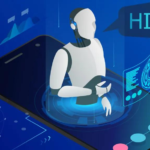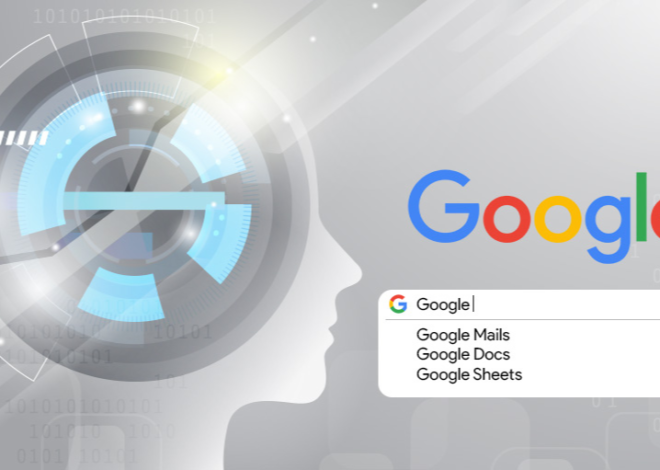
Top 5 New Technology Trends for 2023
The world of technology is changing fast, and this is bringing lots of progress. It’s not just about new gadgets and ideas – things are shifting in bigger ways too. In the years 2023-24, the jobs of IT experts are going to look quite different because of all these changes. They will need to keep learning, even if they don’t want to, just to keep up.
One big change is coming from artificial intelligence. This is when computers become really smart and can do complicated things, like understanding human language or making decisions like a person. In 2023, artificial intelligence is going to be even more important. It’s going to help us do even cooler things.
Another big change is coming from something called 5G. This is going to be a new way for our devices to talk to each other, and it’s going to be super fast. This is going to change how we live and work, making things happen more quickly and smoothly.
So, what does all this mean for you? It means if you want to be ready for the future, you need to keep learning about new technologies and the latest trends. You need to know what skills are going to be important to have a good job in the future.
Right now, a lot of IT experts are working from home because of the worldwide situation. This can actually be a good time to learn new things. If you want to make the most of your time at home, here are 5 new technologies to pay attention to in 2023. By learning about these things, you might be able to get a job that’s all about these new ideas and trends.
Here’s a sneak peek at the future of technology and the trends that you should keep up with in 2023.
1. Artificial Intelligence
Artificial Intelligence is defined as the ability of a digital computer or computer-controlled robot to perform tasks commonly associated with intelligent beings. AI is also defined as,
- An Intelligent Entity Created By Humans.
- Capable of Performing Tasks intelligently without being explicitly instructed.
- Capable of thinking and acting rationally and humanely.
Artificial Intelligence (AI) is one of the fastest-growing fields of technology in the world. As businesses and industries increasingly rely on AI to make data-driven decisions, the demand for AI experts is skyrocketing.
You May Also Read “How Robotaxis Are Dividing San Francisco“
Here are the most in-demand job roles in AI,
- Data Scientist
- Computer Vision Engineer
- Natural Language Processing (NLP) Expert
- Data Scientist
- Machine Learning Engineer
2. Digital Trust
According to the World Economic Forum, digital trust is defined as: “individuals’ expectation that digital technologies and services – and the organizations providing them – will protect all stakeholders’ interests and uphold societal expectations and values.”
Digital trust is all about how much we trust technology and the companies that use it. It’s like having confidence that when we use apps, websites, or online services, they’ll keep our information safe, follow the rules, and do what’s right for everyone involved. So, in simple terms, digital trust is about feeling sure that the online world is reliable and secure.
The pillars of digital trust are like the strong foundation for businesses in the online world.
They include:
- Security
- Privacy
- Reliability
- Transparency
- Accountability
3. Edge Computing
Edge computing is a strategy where computing and storage resources are placed right where data is generated. The main idea is to have the processing power and storage capacity as close as possible to the data source, typically at the edge of a network.
For instance, imagine a small enclosure with servers and storage installed on top of a wind turbine. This setup collects and analyzes data from the sensors within the turbine itself. Another example could be a railway station that installs a modest amount of computing power and storage to process data from various sensors on the tracks and rail traffic.
You May Also Read “Future of Advertisement“
The processed information can then be sent back to a central data center for human review, and long-term storage, and combined with other data for more comprehensive analysis.
Use Cases of Edge Computing Technology:
- Manufacturing
- Farming
- Network optimization
- Workplace safety
- Improved healthcare
- Transportation
- Retail
4. Robotic Process Automation (RPA)
Robotic process automation (RPA) is a cutting-edge software technology that revolutionizes task automation. It enables the creation, deployment, and management of virtual robots, mimicking human interactions with digital systems and software. These software robots possess the ability to comprehend on-screen information, execute precise keystrokes, navigate complex systems, identify and extract data, and perform a wide array of predefined actions.
You May Also Like “Will Robots Take over the World?“
Benefits of robotic process automation
- Reduced overhead: Cut down on labor and implementation expenses by using one piece of software to bring robotic automation to multiple processes.
- Increased efficiency: Taking hours of repetitive work off your team’s plate will help them get through essential tasks more effectively.
- Greater scalability: Since it’s highly iterative and rooted in scalable software, robotic automation can grow with you.
- Fewer human errors: Automation does the same task the same way every time according to the rules you set, virtually eliminating human errors.
- Improved employee happiness: Many employees enjoy being freed from the kinds of tedious tasks that robotic automation is designed to handle.
- More fluid customer experience: Since automated processes are performed the same way every time, customers get timely, predictable responses.
- Better compliance: Stay compliant by automating reporting or sending automatic notifications to relevant team members.
5. Datafication
In this era of big data, most aspects of the business can be tracked, monitored, and analyzed using quantifiable data. Data-driven enterprises use tools and processes to transform themselves into data-driven enterprises.
The term “datafication” was introduced by Kenneth Cukier and Victor Mayer-Schöenberger in 2013 to refer to transforming invisible processes into data that companies can use to optimize their business.
The Future of businesses is Datafication













